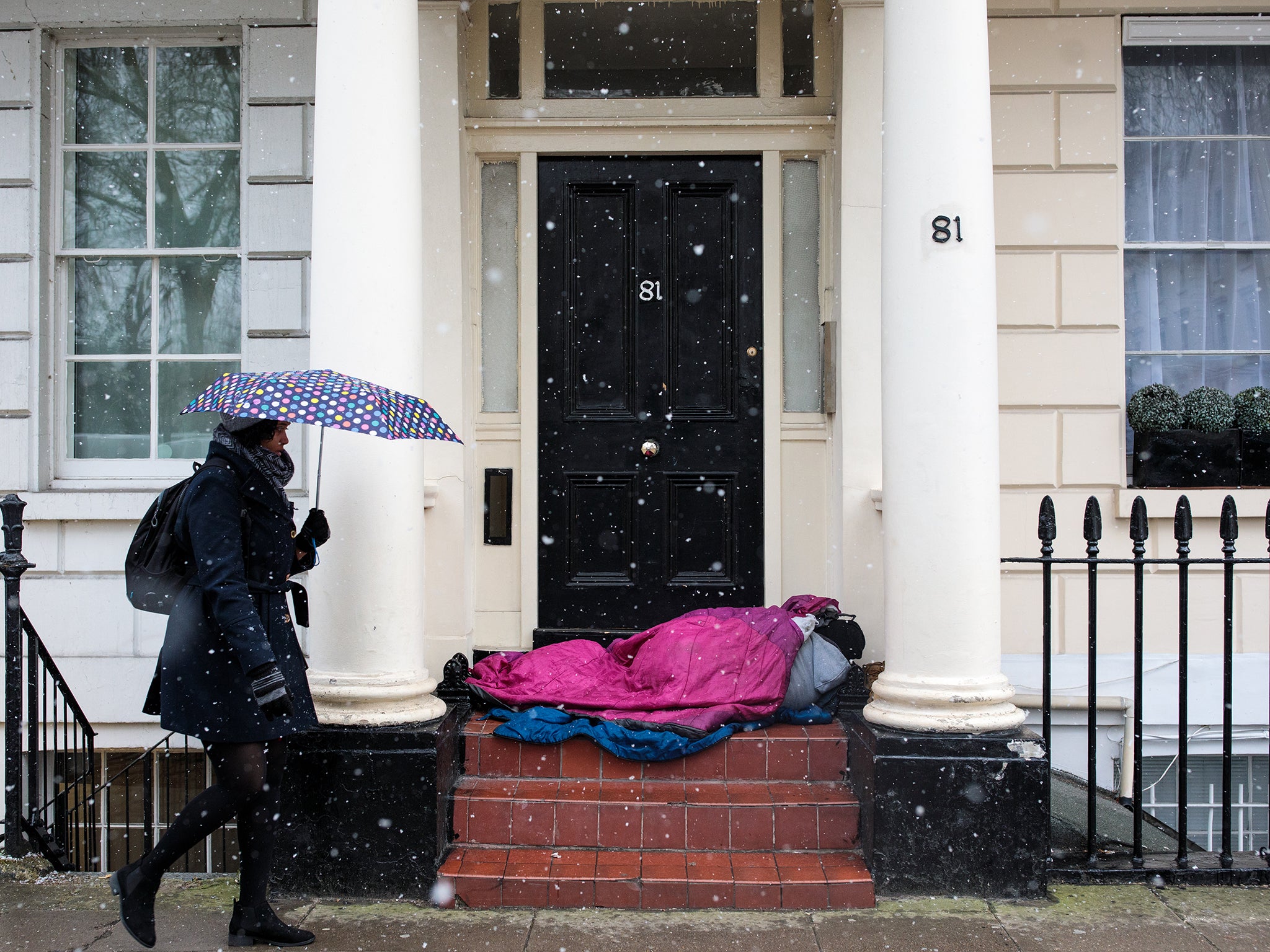Why hasn’t the government extended the eviction ban?
We’ve seen a series of late U-turns from this government, writes Ashley Cowburn – but will people have to lose their homes before it reconsiders the decision not to extend the ban?


Over the past three months there has been a steady stream of alarming stories about the government’s decision to end the moratorium on evictions for renters – a policy introduced as Britain went into lockdown.
Charities have warned tens of thousands are at risk of losing their homes, public health bodies have urged caution over a rise in coronavirus infections, and the mayor of Greater Manchester has suggested the city faces homelessness on a scale not seen since the 1930s.
Acting on the warnings, the Scottish government has hinted at plans to extend the eviction ban until spring 2021. In England and Wales, however, the policy expires on 23 August and from Monday courts can once again resume possession proceedings.
Homelessness charity Crisis has suggested there is already a backlog of eviction cases from proceedings that were paused in March, alongside a potential wave of new cases as the economic impact of the pandemic reverberates across households.
Given the virus shows no sign of abating, and the UK is formally in a recession, why hasn’t the Westminster government sought to extend the evictions ban?
Explaining the policy in July, housing minister Lord Greenhalgh said allowing courts to process possession cases again is an “important step towards ending the lockdown and will protect landlords’ important right to regain their property”.
The government has also insisted “new court rules” will force landlords to provide judges with information on vulnerable tenants, including whether they have been adversely affected by the Covid-19 crisis. Ministers say judges will have the power to adjourn cases if sufficient information is not provided .
But if judges are given the sufficient information, do they have the power to actually stop evictions?
It appears not, according to legal experts on the master of rolls’s working group, which was tasked with preparing courts for the moratorium on how best to support tenants when cases resume. In a letter seen by The Independent they have warned the provision in itself is insufficient in protecting renters, “due to a lack of discretion permitted in housing law”.
Without an extension to the moratorium, campaigners argue one way to prevent a large proportion of tenants from being evicted would be through legislation when parliament resumes after the summer recess. In its absence, charities warn judges are powerless to prevent evictions.
Due to the effect of Section 21 of the 1988 Housing Act – often referred to as “no fault” evictions – landlords have the power to evict tenants after a fixed-term contract without reason. The only protection renters have in this case is three months’ notice.
Like his predecessor, Boris Johnson has vowed to scrap Section 21 – even including it in the Tories’ 2019 election manifesto. A Renters’ Reform Bill was then promised at the Queen’s speech, but it will not come to fruition until the “urgencies of responding to pandemic have passed”.
If the government does not extend the eviction ban, this is a path ministers could find more appealing, or so campaigners hope.
Organisations representing landlords have also been lobbying the government not to grant a further extension, including the National Residential Landlords Association. It believes extending the ban “is not necessary” and that landlords have been unable to take action against antisocial tenants and address situations where renters were in months of arrears before the pandemic struck. The group also urged the government to introduce a financial package to support tenants to pay off rent arrears.
The Labour leader Sir Keir Starmer, however, believes the reason the government hasn’t acted to extend the ban is simply down to “incompetence”. He told The Independent: “After the results fiasco, the government is yet again ignoring warnings of a looming crisis. Last week, the incompetence of Boris Johnson and his ministers jeopardised young people’s future. This week, they are risking people’s homes.”
Unlike the A-levels chaos and eventual U-turn – with tragic stories of students from disadvantaged backgrounds losing out on university places – the human suffering of people losing their homes as result of the eviction ban expiring is yet to come to light. But the repeated warnings of such stories have been clear for ministers to see.
Join our commenting forum
Join thought-provoking conversations, follow other Independent readers and see their replies
Comments
Bookmark popover
Removed from bookmarks